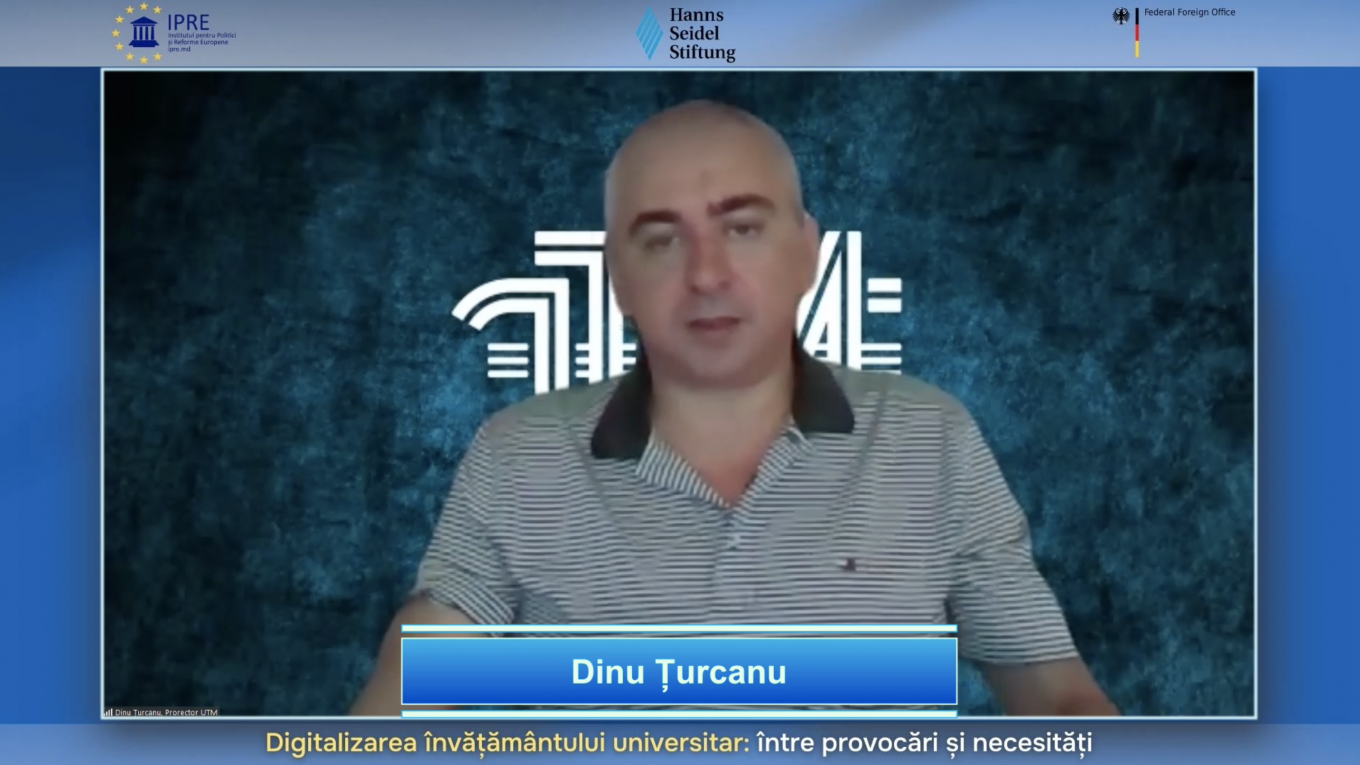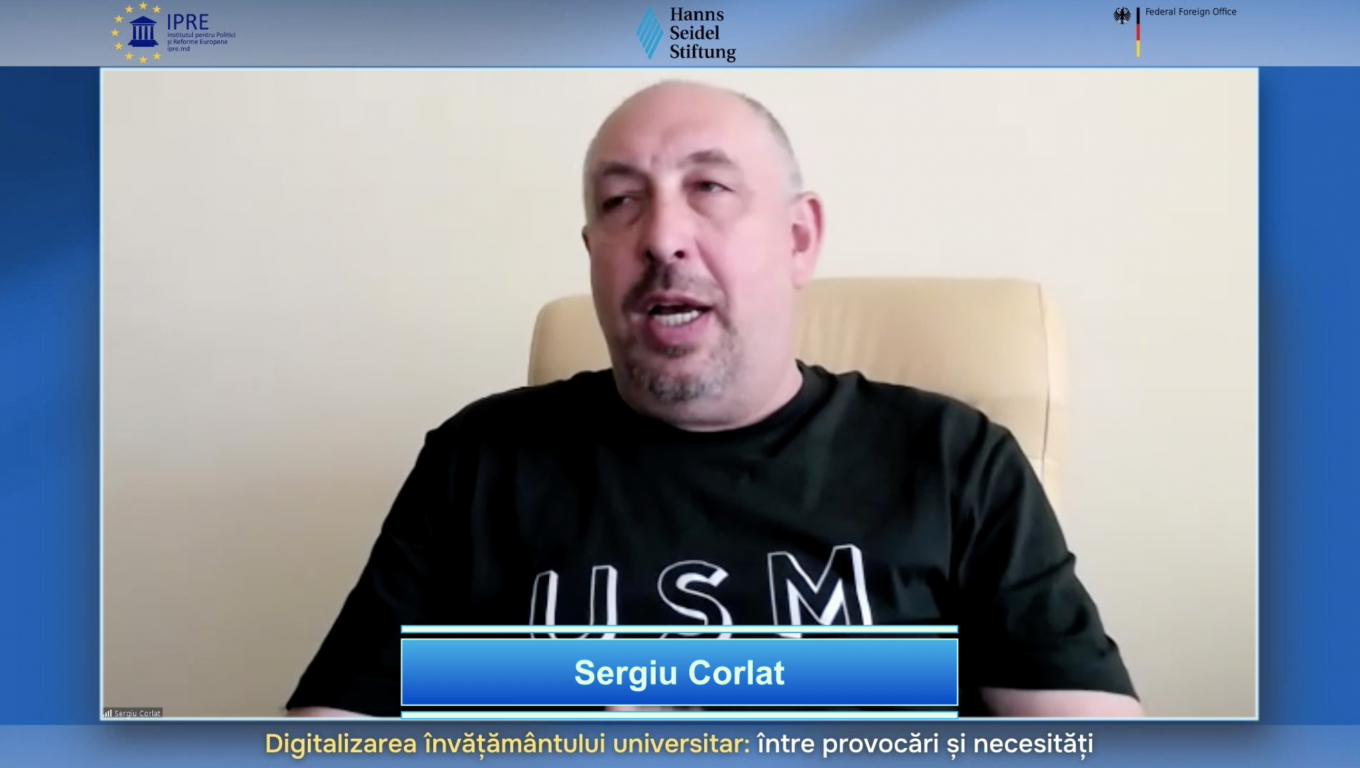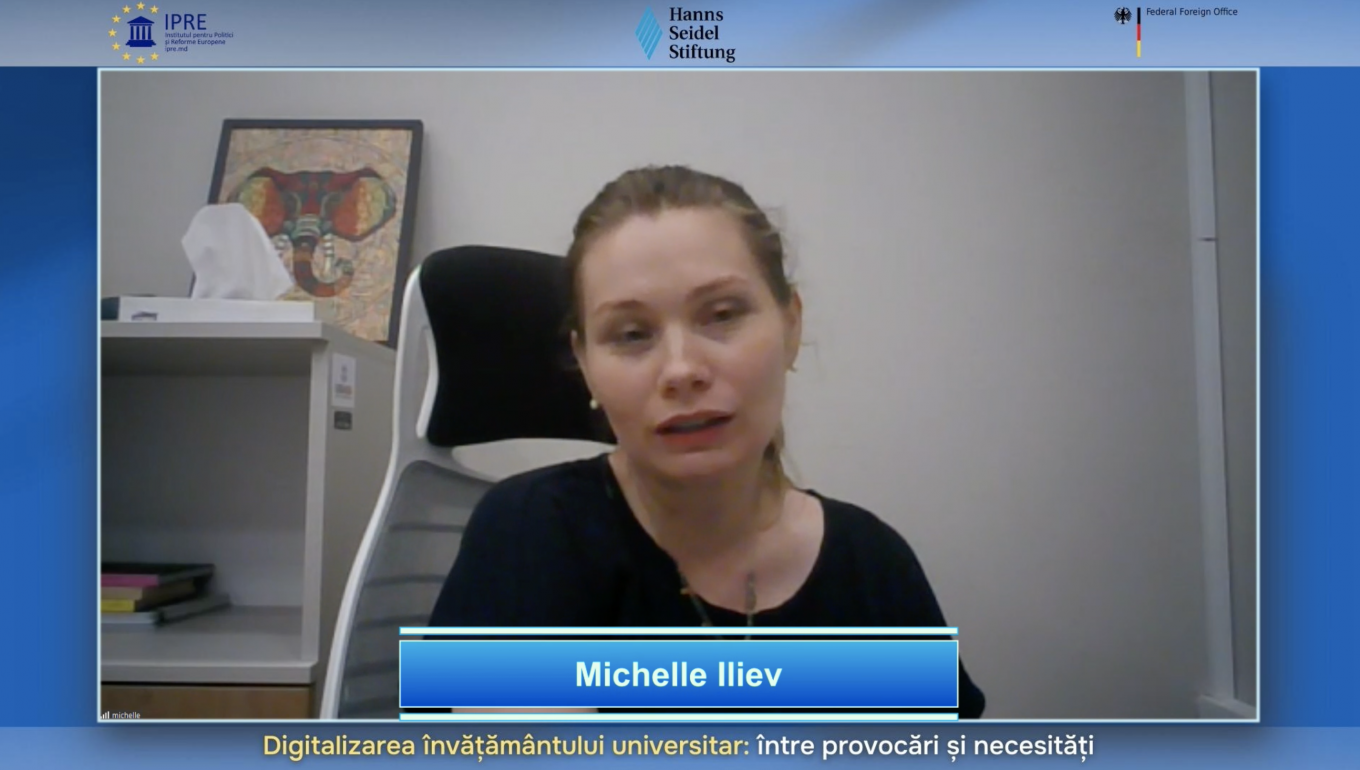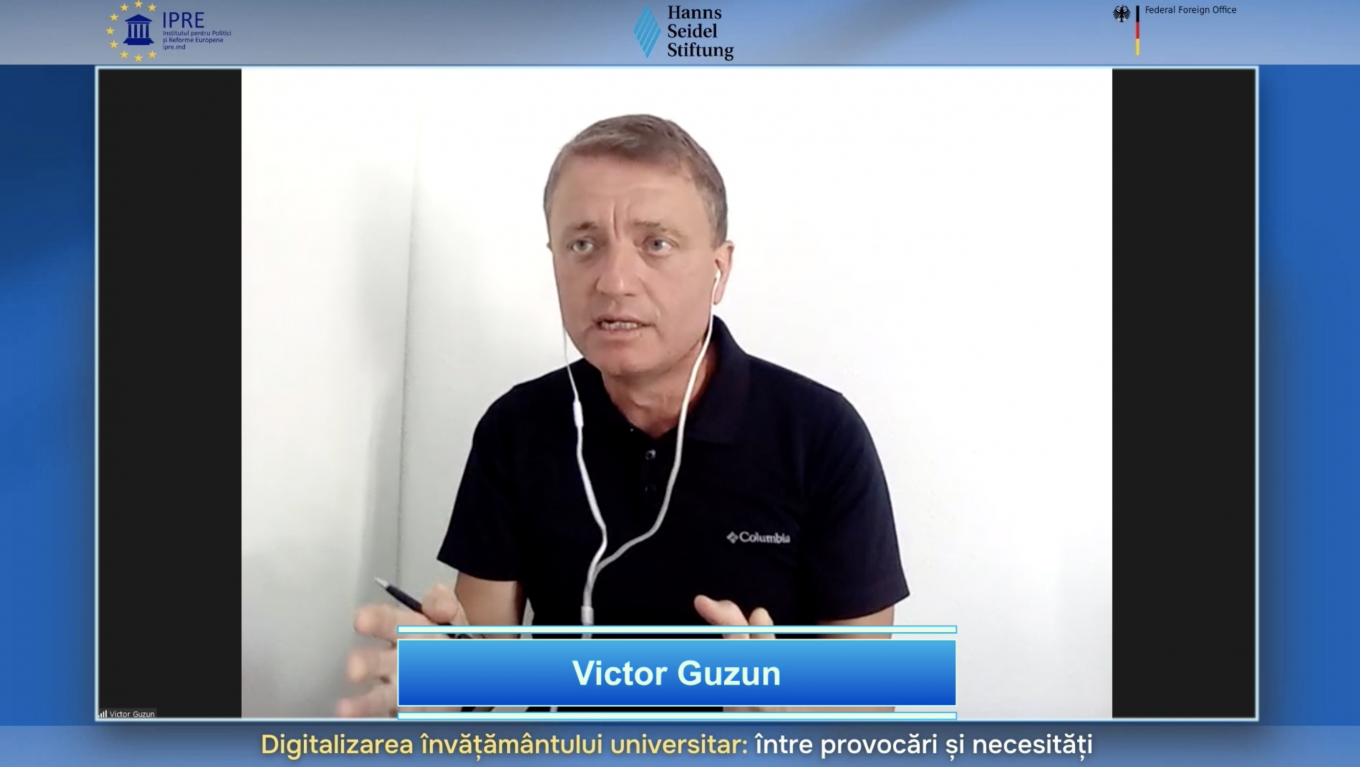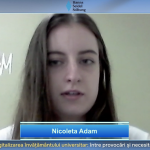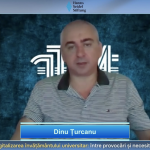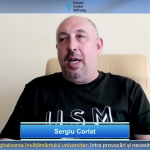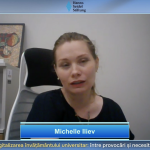Public event #BeTheChange: „The digitalization of higher education: challenges and needs”
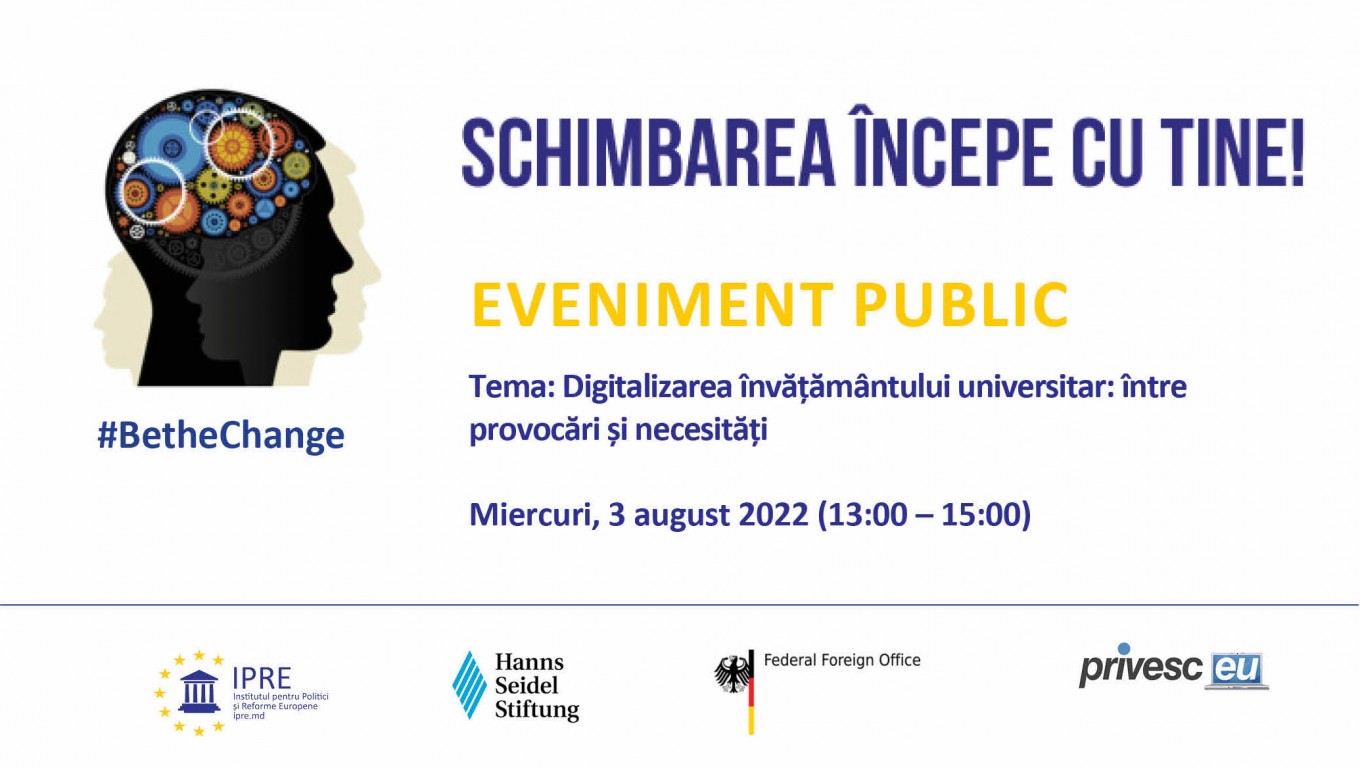
On Wednesday, August 3rd 2022, the Institute for European Policies and Reforms (IPRE), with the support of the Hanns Seidel Foundation in the Republic of Moldova and in media partnership with Privesc.Eu, organised the first event dedicated to the digitalization of higher education within the “BetheChange: Youth for the Europeanization process of the Republic of Moldova” initiative of this year.
The participants of the event, which was moderated by Nicoleta Adam, an intern in the #BeTheChange program at IPRE, discussed the digitalization of the university system and students’ needs in terms of online courses and learning programs, the promotion of digital services nationwide through extracurricular online trainings, the professions of the future, the new educational programs introduced in 2022 and their importance, as well as the collaboration of universities with external partners.
The key interventions of the speakers are available below.
Dinu Țurcanu, the Vice-Rector for Informatization, Partnerships, Institutional Image and Communications at the Technical University of Moldova (UTM): „Digitalization is an important issue both for higher education in the Republic of Moldova and for the society. Universities must become the promoters of all digital ideas and IT tools, without which the education process cannot be ensured even in the classrooms. Starting from September 1, the TUM will launch a digital library which will include several digital services. A platform with electronic course materials for lectures, practical classes and laboratories has also been developed and will be launched in early September. We are evolving continuously. When you work in an environment where young people are passionate about IT stuff it is much easier to implement it. Students put pressure on the further development of new services, thus this implementation has to be continuous.”
Sergiu Corlat, the Prorector for Digitalization at the State University of Moldova (USM): „Digitalization allows us to do some revolutionary things, to break the barriers of time and distance. However, communication is extremely necessary when we switch from traditional learning models to less common ones. Digitalization is also changing the teaching process. The role of the professor is to guide the students, so that they achieve the goals of the course. There is the possibility to use both internal digital resources, such as university libraries, and external ones, as well as those distributed for free or offered for a fee. Students now have access to a variety of resources, thus the role of the professor is changing. Digitalization not only increases the volume of resources available to us, but it also changes the way we teach. The role of the professor becomes one of guiding the students broadly so that they achieve the goals of the course.”
Michelle Iliev, Education & Skills Expert at Future Technologies Activity (FTA): „Our universities want to adapt to the changes taking place in education, because the value of educational processes is only visible when they are in synergy with the current events of the world. We enter the creative economy in 2030, therefore the new specialities introduced this year are in line with the following trends in 2030-2035. The biggest emphasis is put on the universities rethinking their philosophy and reflecting on what it means to be a university in the creative economy. Today’s university needs to understand that it has no borders, and each university needs to review its programms in order to make them relevant to the region.”
Victor Guzun, Expert, Digitalization Policies, IPRE: „The concept of digital transformation applies to the whole society and this is the key element of the Digital Transformation Strategy of the Republic of Moldova for 2023-2030. Everyone has to benefit from digital transformation and universities cannot stay away from these processes. All universities must ask themselves what their role is in preparing future specialists with digital skills, as the responsibility for the creation of a digital society does not lie solely on the Deputy Prime Minister for Digitalization or a few state institutions. It requires the involvement of the banking sector, the IT environment, but also the educational system, particularly universities. Digital transformation must be a new national priority for education in Moldova and every university must develop digital competence centres in their niche area.”
For more details, the video recording of the event is available on privesc.eu here and on rlive.md here.
The event was organized by the interns of the #InternshipIPRE2022 program within the project „BetheChange: Youth for the Europeanization process of the Republic of Moldova”, implemented by IPRE, in cooperation with the Hanns Seidel Foundation in the Republic of Moldova and with the financial support of the Federal Ministry of Foreign Affairs of Germany.

